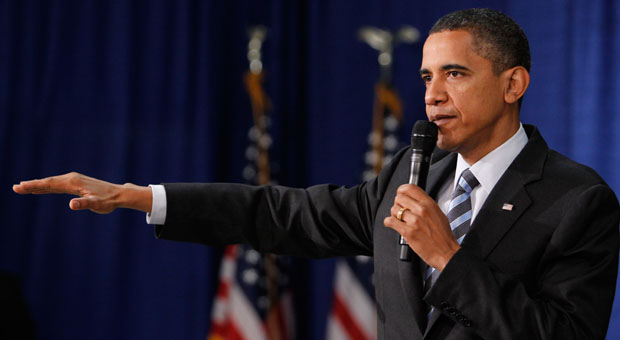"I don't sit around just talking to experts because this is a college seminar. We talk to these folks because they potentially have the best answer so I know whose ass to kick," Obama said in an interview with NBC News' "Today" to air on Tuesday.
They were the angriest words yet about the catastrophe from Obama, who has been criticized for his response to the worst oil spill in US history. Obama reiterated that all those affected should be adequately compensated.
The stakes remain high for all involved — from Gulf Coast communities devastated by the disaster to Obama and his domestic standing to BP and its battered reputation with the public and investors.
A Washington Post/ABC poll found that 69 percent of Americans believe the government had done a "not so good" or "poor" job handling the spill. Just over 1,000 people were surveyed in the poll, conducted between June 3 and 6.
BP's shares closed down slightly in London on Monday. It has lost about a third of its value since the crisis erupted in late April and it took another blow as Goldman Sachs downgraded its rating on BP to "neutral" from "buy."
While a complete halt to the flow of oil is not expected until August at the earliest, BP reported an increase in the amount of oil it is capturing from the well in its latest containment effort.
Coast Guard Admiral Thad Allen, who leads the government's relief effort, said London-based BP hoped to collect 20,000 barrels (840,000 gallons/3.18 million liters) per day in its latest effort.
BP said it had collected 7,541 barrels of oil in the first 12 hours of Monday. If it collected the same amount the rest of the day, the total for Monday would be more than 15,000 barrels, about 35 percent higher than the amount collected on Sunday.
Neither Allen nor BP gave an estimate of how much oil is still flowing into the Gulf. BP's latest attempt involves placing a containment cap on top of the gushing pipe on the ocean floor.
Away from the action in the Gulf, the political heat remains intense in Washington with yet another congressional hearing set to bring BP and its peers under renewed scrutiny.
The Senate Judiciary Committee holds a hearing at 10:00 EDT (1400 GMT) on Tuesday titled: "The Risky Business of Big Oil: Have Recent Court Decisions and Liability Caps Encouraged Irresponsible Corporate Behavior?" Democrats in Congress have been looking at lifting such caps.
The Senate hearing follows one in Chalmette, Louisiana, where two women who lost their husbands in the April 20 rig explosion that unleashed the crisis urged members of Congress to hold BP accountable.
"I am asking you to please consider harsh punishments on companies who choose to ignore safety standards before other families are destroyed," said Courtney Kemp, whose husband, Wyatt, was one of the 11 workers killed in the explosion.
The gravity of the spill was spelled out by Admiral Allen, who said its environmental consequences could last for years.
"Dealing with the oil spill on the surface is going to go on for a couple of months" once the well is plugged, he said. "Long-term issues of restoring the environment and the habitats ... will be years."
The spill has now affected 120 miles (193 km) of coastline.
After fouling wildlife refuges in Louisiana and barrier islands in Mississippi and Alabama, oil has hit some of the famous white beaches of Florida, where the $60 billion-a-year tourism industry accounts for nearly 1 million jobs.
Images of birds struggling through oil-soaked waters ringing Louisiana's ecologically fragile barrier islands and marshes have added to the public outcry and pressure on Obama.
One-third of the Gulf's federal waters, or 78,000 square miles (200,000 square km), remains closed to fishing, and the toll of dead and injured birds and marine animals is climbing.










